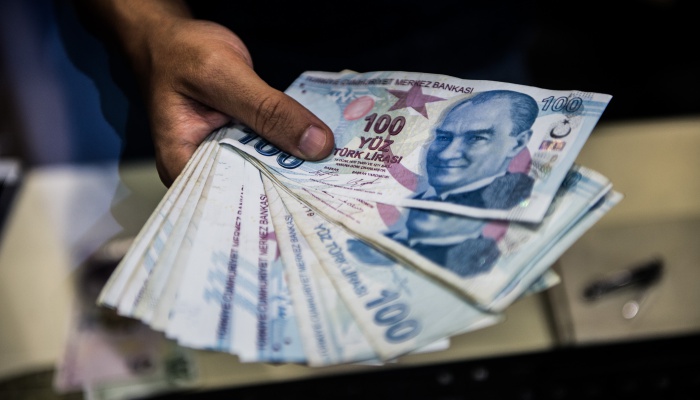The Turkish economy grew by 5.2 percent in the second quarter of this year compared to the same period last year, the country’s statistics authority announced on Monday, according to the Hürriyet Daily News.
The Turkish lira firmed to 6.47 to the dollar from 6.4850 before the data release.
Second quarter gross domestic product (GDP) expanded a seasonally and calendar adjusted 0.9 percent from the previous quarter, data from the Turkish Statistics Institute (TurkStat) showed.
The highest contribution to growth again came from domestic consumption — mainly private — in the second quarter, according to calculations.
The TurkStat report showed private consumption, which is estimated to make up nearly two-thirds of the economy, grew 6.3 percent on an annual basis during the second quarter of the year, slowing from a revised 9.3 percent in the first quarter. Its contribution to GDP was 3.8 points.
On the other hand, government spending on consumption rose 7.2 percent from a revised 4.9 percent in the previous quarter. Its share rose to 1 point from 0.7 points in the first quarter.
Gross fixed capital formation rose 3.9 percent, while its share regressed to 1.2 points in the second quarter from 2.3 points in the first quarter.
With a 4.5 percent increase in exports, the share of exports in growth rose to 0.96 percent.
Treasury and Finance Minister Berat Albayrak said growth in the second quarter continued to be driven by domestic consumption despite a moderate slowdown in consumption and investment.
“In addition to this, we have seen that strong export and tourism performance enabled net foreign demand to make a positive contribution to growth,” he said, adding that “this outcome has shown that Turkey’s economy has entered a rebalancing period in line with government targets.”
He noted that initial indicators showed that the slowdown in domestic demand has intensified.
“We expect a higher positive contribution by net foreign demand to growth thanks to robust export and tourism revenue and a decrease in demand for imports,” Albayrak added.
When the activities that constitute gross domestic product were analyzed, the total value added decreased by 1.5 percent in the agriculture sector, increased by 4.3 percent in the industrial sector, 0.8 percent in the construction sector and 8 percent in the services sector (wholesale and retail trade, transport, storage, accommodation and food service activities) compared to the same quarter of the previous year in the chain linked volume index, according to TurkStat data.
According to calculations, the share of the construction sector in the Turkish GDP was 0.06 points in the second quarter, the lowest since early 2015.
Meanwhile, Turkey topped the list among OECD member countries and came second among EU members that have so far announced their annual growth performance for the second quarter, according to the state-run Anadolu news agency.
According to a Reuters poll, the economy is expected to grow 3.3 percent in the year as a whole amid a collapse in the Turkish lira.
The official data also showed that the economy expanded 7.4 percent in 2017, matching previously released data.
“In 2017, the manufacturing industry had the largest share [in GDP] with 17.6 percent,” it said.
“The manufacturing industry was followed by wholesale and retail trade and the construction industry with 11.9 percent and 8.6 percent, respectively.”

